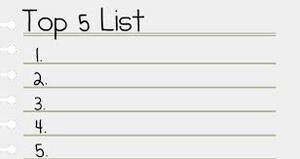Top Five Exchange Traded Funds (ETFs)
In this Blog post I will share some of the funds that we currently use in our own practice and that I personally hold in in my own portfolio. My hope is that I am able to help individual investors create portfolios that help them achieve their financial goals and avoid unnecessary fees that come with loaded mutual funds and the high expense ratios associated with most actively managed funds.
Vanguard Total World Index - VT - This is one of the best all-around funds for individual investors who don’t want to get too complicated with their investment portfolio. It invests in the world stock market, which means you get exposure to US, International, and Emerging Markets stocks making it one of the most diversified equity portfolios available. It covers about 98% of the world's public market cap and all at the very low expense ratio of 0.19%.
WisdomTree Small Cap Dividend Index - DLS - This fund invests in US Small Company stocks specifically weighted to Dividend paying companies. This weighting actually gives it a nice 12-month Yield of 3.84% (10/11/13 Morningstar) as well as a "Value tilt". This is important because studies have shown that Value stocks tend to outperform over time. This is a little more expensive with a 0.58% expense ratio but still not too much for the space it operates in (small cap funds on average are more expensive then their large cap counterparts). If you are looking for access to this little niche in the market (small cap value stocks) then this is a good option. You won't find much else that compares in this area.
iShares MSCI EAFE Value - EFV - In my research I have found this one of the best funds to gain access to International Value exposure in your portfolio. The 0.40% expense ratio is affordable for this investment category. Keep in mind that international stocks historically have had higher risk, as have value stocks so this is best used in a highly diversified portfolio.
Vanguard Total Stock Market Index - VTI - VTI's 0.05% expenseratio makes it one of the least expensive ETF's in the world. This is about as close as it gets to investing for free as it comes. Similar to VT mentioned above, this fund is highly diversified (Holds about 3,500 individual stocks) but only invests in the US Stock Market. It invests in all different size companies, including Large, Mid, Small, and Micro Cap. The low cost and efficiency of this fund could make this a core holding in any portfolio.
iShares Bond 2016 Corp ex-Financials - IBCB - This is the only Bond Fund investment on this list and is fairly new type of fund called a Target Maturity Bond Fund. It holds many different bonds but unlike traditional bond funds this fund will mature in 2016. Therefore, you can hold this fund to maturity and avoid much of the interest rate risk associated with non-maturing bond funds. The expense ratio is very low at 0.10% and is just one in a series of other target maturity date funds by iShares (IBCC, IBCD, IBCE) which means small investors can build a bond ladder without a large portfolio. Since they are new to the market they may trade with large spreads and low volume so be careful if buying large share amounts. It's best to use limit orders when purchasing these funds. Also, because it invests in Corporate Bonds there is some credit risk although the portfolio is still investment grade overall.
You will notice that two of the top five ETFs that I mentioned above are Vanguard Funds. These are just two of many the Vanguard funds that we use in our client's portfolio's as well as my own personal portfolio. This is because Vanguard's has the most low-cost, well-diversified index funds of any other fund company. Also, Vanguard is actually owned by its shareholders which is one of the ways they are able to keep costs so low.
Any fund or ETF mentioned in this article may or may not be a good investment for you. This is in no way a recommendation for you to buy or sell any of these funds. As I mentioned earlier consult with your Financial Advisor or Phillip James Financial so that you understand the risk associated with investing in these or other securities.

